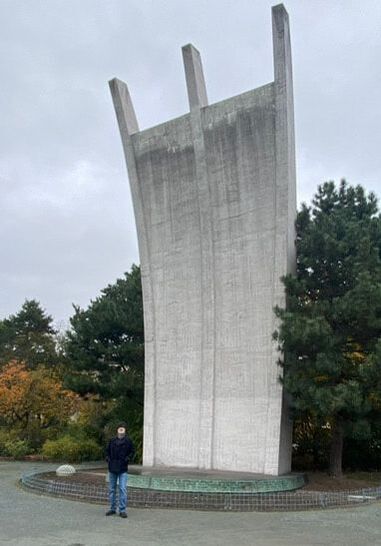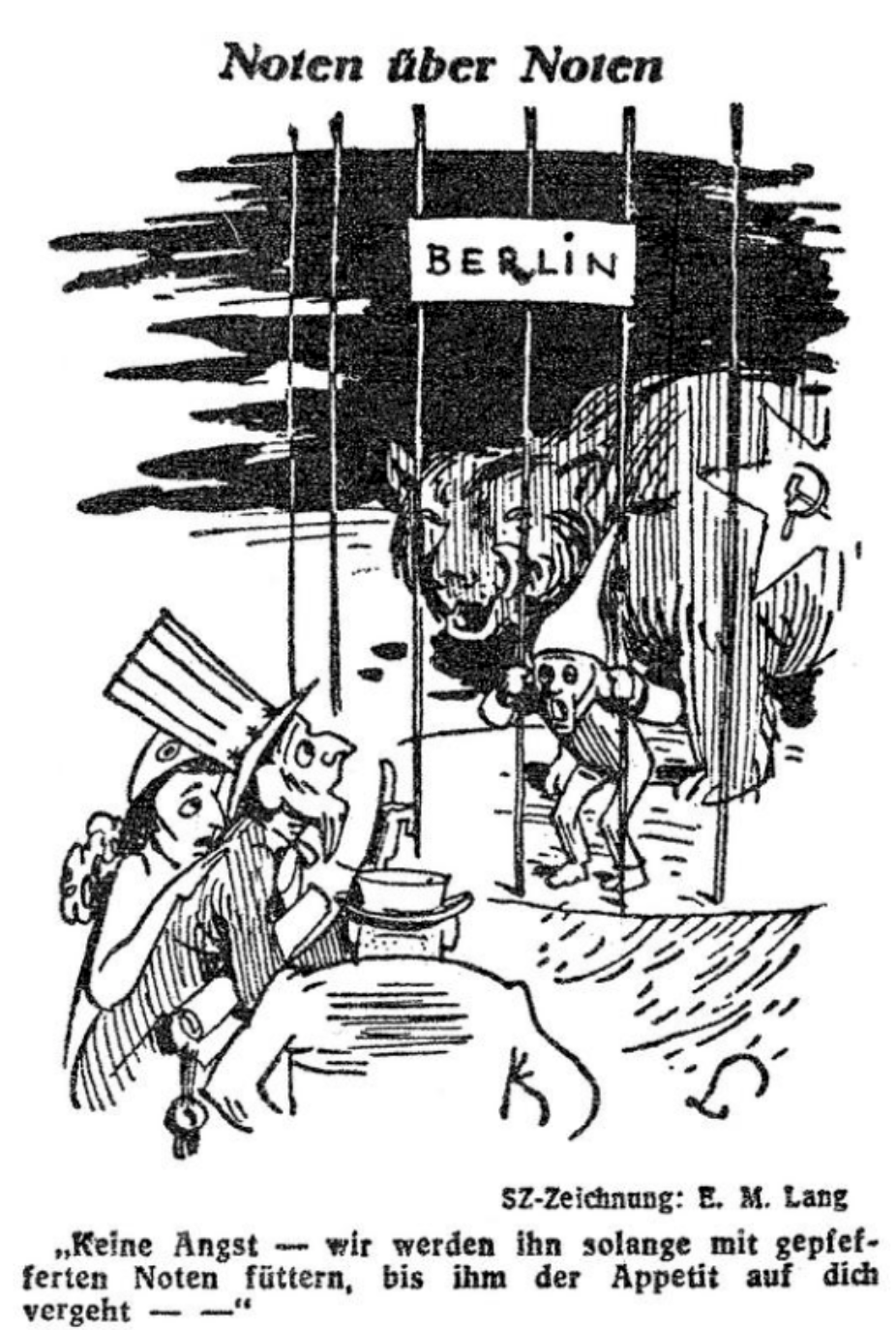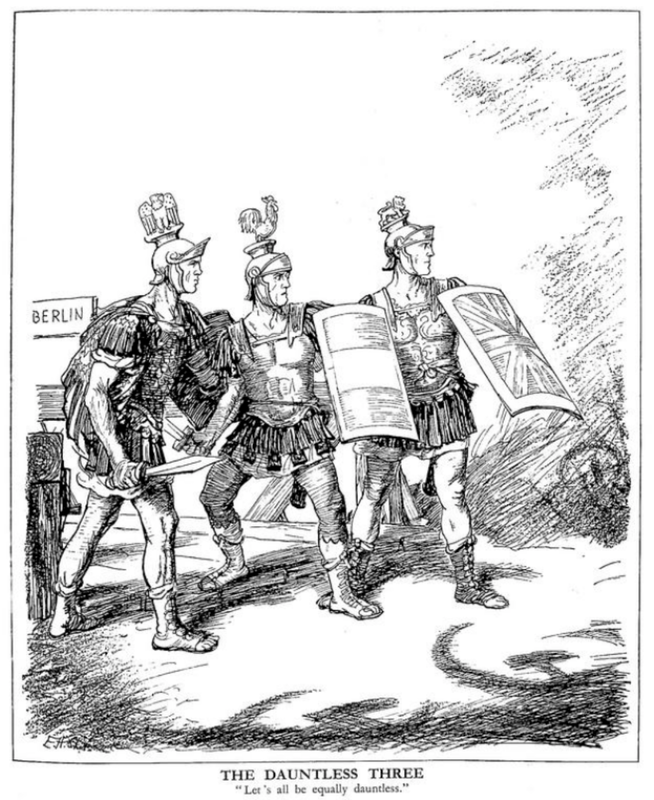Lesson 3 - The Berlin Blockade 1948-49
Causes of the Berlin Blockade
As we saw last lesson, issue of Germany was to highlight the different attitudes of the superpowers to the post-war world. The western zones, run by Britain, the USA and France, benefited from an influx of Marshall Aid. The eastern zone, run by the USSR, was plundered for resources, taken as reparations for war damage caused during the Second World War. Denied access to Marshall funds, living conditions in East Germany remained low and were slow to recover. By 1948 the difference in living standards between West and East Germany had become embarrassingly obvious. It was in Berlin that this difference was brought into sharp focus. West Berlin had become an island of prosperous capitalism in a sea of communism. As a symbol of this increasing prosperity, the western powers decided to introduce a new currency in their zones. The new Deutsche Mark would, it was hoped, provide economic stability and aid recovery.
As we saw last lesson, issue of Germany was to highlight the different attitudes of the superpowers to the post-war world. The western zones, run by Britain, the USA and France, benefited from an influx of Marshall Aid. The eastern zone, run by the USSR, was plundered for resources, taken as reparations for war damage caused during the Second World War. Denied access to Marshall funds, living conditions in East Germany remained low and were slow to recover. By 1948 the difference in living standards between West and East Germany had become embarrassingly obvious. It was in Berlin that this difference was brought into sharp focus. West Berlin had become an island of prosperous capitalism in a sea of communism. As a symbol of this increasing prosperity, the western powers decided to introduce a new currency in their zones. The new Deutsche Mark would, it was hoped, provide economic stability and aid recovery.
|
Talks in Moscow and London in 1947 between the two sides over the future of Germany broke down as both sides put obstacles in the way of an agreement. The USA did not fear a revived Germany due to its geographical position; in fact it saw Germany's economic revival as essential to US financial interests. In contrast, the Soviet Union had much to fear from a German revival that might lead to a repetition of the suffering caused during the two world wars. Thus, when the new currency was introduced in West Berlin in June 1948, Stalin took action. All road, rail and canal links with West Berlin were severed. The blockade of the city was interpreted by the US government as the first stage of an attack on West Germany. This is unlikely. Stalin may have wished to starve the West out of Berlin, but he probably wanted to prevent the emergence of a separate West German state under US influence.
|
|
|
The Airlift
The West responded to the blockade by organising an airlift of supplies into Berlin. All food and fuel supplies for over 2 million Berliners were flown into the city. It was an expensive operation executed with impressive organisational skill. Despite constant shortages, the city was able to survive. American and British air forces flew over Berlin more than 250,000 times, dropping necessities such as fuel and food, with the original plan being to lift 3,475 tons of supplies daily. By the spring of 1949, that number was often met twofold, with the peak daily delivery totalling 12,941 tons. At the height of the airlift, one plane reached West Berlin every thirty seconds.
|
|
Seventeen American and eight British aircraft crashed during the operation. A total of 101 fatalities were recorded as a result of the operation, including 40 Britons and 31 Americans. By May 1949 Stalin was forced to concede defeat and he lifted the blockade. The actions of the West had been successful, and it was an important boost to their morale after the events in Czechoslovakia.
|
In front of the airport entrance at Templehof in Berlin is the Berlin Airlift Monument erected in 1951. An inscription on the base records the names and ranks of the 78 people killed in accidents during the Berlin Blockade. Its design features 3 arcs pointing west to symbolise the 3 air corridors that were the city's lifeline, as a result of which Berliners also call it the Hungerkralle (hunger claw) or Hungerharke (hunger rake).
|
The consequences
|
Creation of NATO - The Berlin Crisis had illustrated the need for a more coordinated approach by the West in order to prepare for the possibility of Soviet aggression. In April 1949 the USA opened talks with Canada and the countries of western Europe with the aim of committing itself to a military alliance. The result was the setting up of the North Atlantic Treaty Organisation (NATO). This was an enlargement of the Brussels Treaty of 1948, which had been signed by Britain, France, Belgium, the Netherlands and Luxembourg to establish military cooperation in the event of war. The significance of NATO was that it involved the USA in a military alliance during peacetime and, therefore, made it clear to the Soviet Union that there would be no return to isolationism. The guiding principle of NATO was that an attack on one of its members would be seen as an attack on all.
|
|
A NATO command was set up to coordinate the defence of its members. Thus, NATO was a defensive organisation to protect the West and its interests. Stalin viewed the creation of NATO as a deliberately provocative action but he was able to enhance the capability of the Soviet Union by breaking the US nuclear monopoly. The Soviet Union exploded its first atomic bomb in August 1949, earlier than the West had expected. Despite this increase in Soviet power, the Berlin Crisis and the formation of NATO had taken any initiative in Cold War relations away from the USSR.
Creation of FDR and GDR. Another significant result of the Berlin Crisis was the end to any hope of an agreement between East and West over Germany. The temporary division of the country, laid down at Yalta and Potsdam, was now to become a more permanent feature. In August 1949 the three western zones of Germany joined together to become the Federal Republic of Germany (commonly known as West Germany). In response, the Soviet zone became the German Democratic Republic (East Germany) in October. As capitalism flourished in West Germany, communism was imposed upon East Germany. It was a division that was to last for forty years.
Creation of FDR and GDR. Another significant result of the Berlin Crisis was the end to any hope of an agreement between East and West over Germany. The temporary division of the country, laid down at Yalta and Potsdam, was now to become a more permanent feature. In August 1949 the three western zones of Germany joined together to become the Federal Republic of Germany (commonly known as West Germany). In response, the Soviet zone became the German Democratic Republic (East Germany) in October. As capitalism flourished in West Germany, communism was imposed upon East Germany. It was a division that was to last for forty years.
Activity
(Above, two cartoons from July 1948. The German cartoon from the 17th of July says ‘Note after note — Fear not! We shall feed him so many strongly worded notes that he will no longer have any appetite for you.’ The British cartoon from 28th July says ‘The dauntless three ‘Let’s all be equally dauntless.’ To be ‘dauntless’ is to be heroically brave.)
- Compare and contrast the two cartoons as evidence about the Berlin crisis. Suggest reasons for their differences and refer to details in the cartoons in your answer.
- How useful are the cartoons as evidence about the Berlin crisis? (OPCVL)
- Draw a revision diagram – spider diagram, mind-map or table - to show the main causes and consequences of the Berlin Airlift.
|
Extra and extension.
The very best students are able to go beyond explaining events in isolation and can begin to see connections over time and space. This excellent website on Berlin for example tells the history of the Cold War through the story of Berlin from 1945 to 1990. |





